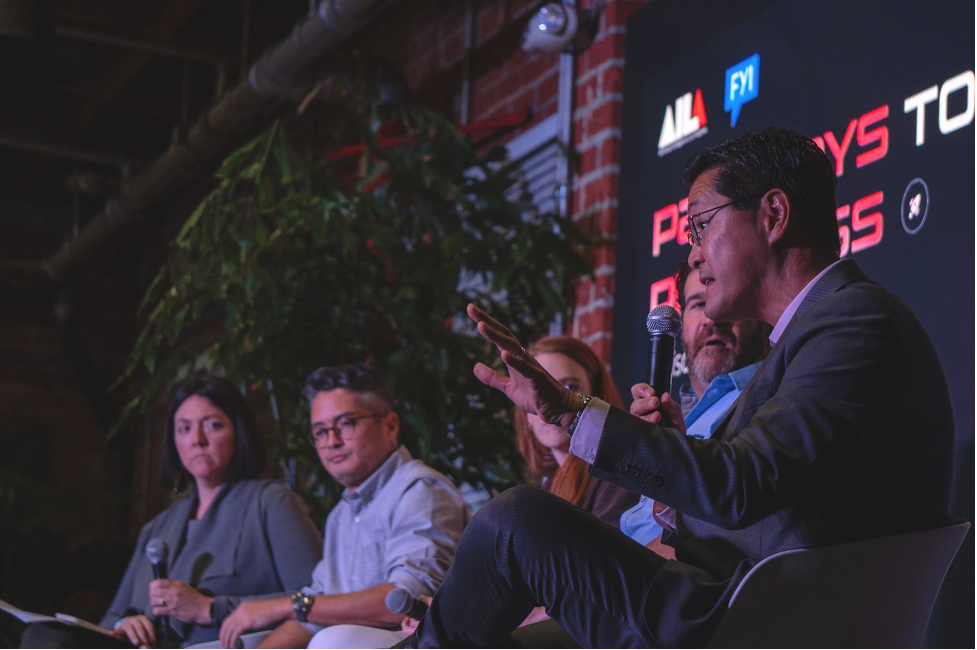
Artificial intelligence, often regarded as the stuff of science fiction, has received increased attention with the rise of technologies such as ChatGPT, and the perceived growing role of AI in education. LMU has been at the forefront of conversations around the impact and development of AI in education, thanks to our location in Silicon Beach and our partnerships with the tech industry.
Two LMU leaders joined artificial intelligence industry professionals to provide insight on the “Pathways to Progress” panel on Aug. 31, 2023, an event focused on AI literacy across the educational spectrum. Audra Verrier, Ph.D., associate vice provost of career and professional development, moderated the panel that included Executive Vice President and Provost Thomas Poon, Ph.D.; Sara Hooker, an AI research scientist; Joel Walsh, a software engineer; and Stephen Fromkin, chief content officer of Talespin, an enterprise software solutions company. The event was hosted by Artificial Intelligence Los Angeles (AILA), a nonprofit that explores the impact of AI and other emerging technologies on humanity at the FYI campus in Hollywood. FYI is an AI tool for creative collaboration that can also be used for educators to streamline workflow.
The panel’s engaging discussion ranged from interdisciplinary uses for artificial intelligence to equipping young students with the tools to think critically around AI. will.i.am, founder of FYI, opened the discussion with a moving explanation of AI’s ability to provide a level playing field within education.
“This panel was part of an ongoing relationship with AILA and FYI,” said Verrier. “We’re looking to work together with them and expose our students to FYI and increase AI literacy for college students. We want to do more work incorporating AI into schools from the infrastructural and organizational perspectives to enhance the learning of all our students.”
The final question of the evening centered around how higher education will be affected by AI and whether higher education would adapt or become obsolete. Panelists remained emphatic that the rise of AI does not correlate to the end of higher education; rather, higher education can become the place where AI realizes its full potential to make education and creative pursuits more accessible and equitable.
“When you don’t have to be an artist to be able to draw, when you don’t have to be an animator to animate, when you don’t have to be a filmmaker to make film — what will you need to be able to do? You will need to be able to be creative, you will have to draw from different disciplines that you receive in an education,” said Poon. “We will still need critical thinking skills, that breadth of knowledge that almost all universities and colleges require of their students, that core curriculum. That’s what feeds our creative process.”



